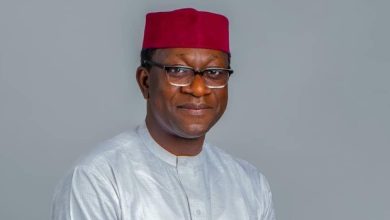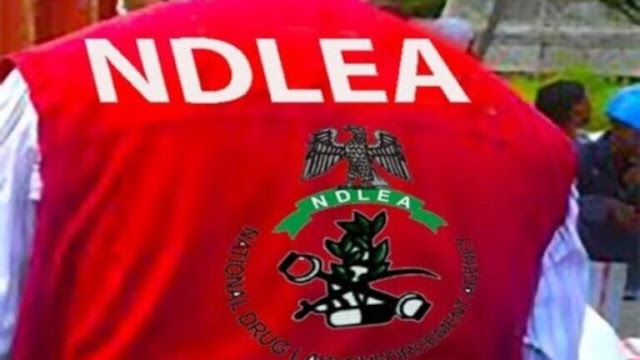In a dramatic turn of events that underscores the ongoing internal turmoil within Nigeria’s political landscape, the New Nigeria Peoples Party (NNPP) has categorically rejected the purported expulsion of Abdulmumini Jibrin, a prominent member of the House of Representatives, from its ranks. The party, in a strongly worded statement issued on Saturday, September 6, 2025, described the expulsion as a “joke taken too far,” asserting that the move lacked legitimacy and was orchestrated by individuals with ulterior motives. This development has further exposed the deep-seated factionalism within the NNPP, raising questions about the party’s unity and its prospects ahead of future elections.
Background: The Context of Jibrin’s Alleged Expulsion
Abdulmumini Jibrin, a seasoned politician and lawmaker representing the Kiru/Bebeji Federal Constituency of Kano State, has been a significant figure within the NNPP since his defection from the All Progressives Congress (APC) in 2022. His political journey has been marked by a series of high-profile moves, including his role as a key ally of Rabiu Musa Kwankwaso, the NNPP’s presidential candidate in the 2023 general elections. Jibrin’s influence within the party stems not only from his legislative experience but also from his ability to mobilize support in Kano, a state considered a political stronghold for the NNPP.
The controversy surrounding Jibrin’s expulsion began when a faction of the NNPP’s leadership in Kano State announced his removal from the party, citing alleged anti-party activities and breaches of the party’s constitution. The faction, reportedly led by a group loyal to a rival power bloc within the NNPP, claimed that Jibrin’s actions had undermined the party’s unity and objectives. Specifically, the group accused him of aligning with external forces and engaging in activities that were detrimental to the NNPP’s interests in Kano and beyond.
However, the NNPP’s national leadership swiftly moved to discredit the expulsion, labeling it a nullity. In its official response, the party argued that the faction responsible for the announcement lacked the constitutional authority to expel a member of Jibrin’s stature. The statement, signed by the party’s National Publicity Secretary, Ladipo Johnson, emphasized that the NNPP’s constitution clearly outlines the procedures for disciplinary actions, none of which were followed in Jibrin’s case.
The NNPP’s Official Stance
The NNPP’s rejection of Jibrin’s expulsion was unequivocal. In its statement, the party described the move as an attempt to sow discord and destabilize the NNPP’s operations in Kano, a state that has become a battleground for political supremacy in northern Nigeria. The party accused the faction of acting in bad faith, suggesting that the expulsion was a calculated move to weaken the NNPP’s influence ahead of the 2027 general elections.
“This so-called expulsion is nothing but a joke taken too far,” the statement read. “The individuals behind this action are not recognized by the national leadership of the NNPP and lack the authority to make such pronouncements. Honorable Abdulmumini Jibrin remains a bonafide member of our great party, and we urge our supporters and the general public to disregard this baseless claim.”
The NNPP further called for unity among its members, urging them to focus on strengthening the party’s structures rather than engaging in actions that could lead to further division. The party’s leadership also hinted at taking disciplinary measures against those responsible for the unauthorized expulsion, signaling that the matter was far from resolved.
Jibrin’s Response: A Defiant Stand
Abdulmumini Jibrin, known for his outspoken nature, did not shy away from addressing the controversy. In a series of posts on his official X account, Jibrin dismissed the expulsion as a “desperate attempt” by detractors to tarnish his reputation and weaken the NNPP’s influence in Kano. He reiterated his commitment to the party and its leadership, particularly Kwankwaso, whom he described as a mentor and a visionary leader.
“I have been a loyal member of the NNPP, and my dedication to the party’s ideals remains unshaken,” Jibrin wrote. “This so-called expulsion is a distraction orchestrated by those who fear the growing influence of our party in Kano and Nigeria as a whole. I urge our supporters to remain calm and focused as we continue to work for the betterment of our people.”
Jibrin’s response also included a subtle jab at his detractors, whom he accused of being “agents of division” working to undermine the NNPP’s progress. He vowed to continue his legislative duties and political activities under the NNPP’s banner, asserting that no amount of propaganda could deter him from his mission.
The Roots of the Crisis: Factionalism Within the NNPP
The controversy surrounding Jibrin’s expulsion is a symptom of deeper issues within the NNPP, particularly in Kano State, where competing factions have been vying for control of the party’s machinery. The NNPP, which emerged as a significant force in the 2023 elections, has struggled to maintain internal cohesion, with various groups jostling for influence ahead of the 2027 polls.
At the heart of the crisis is the power struggle between loyalists of Rabiu Kwankwaso and other emerging factions within the party. Kwankwaso, a former governor of Kano State and a political heavyweight, has been the driving force behind the NNPP’s resurgence in recent years. His influence, particularly in Kano, has made the NNPP a formidable opponent to the APC and the Peoples Democratic Party (PDP) in the state. However, his dominance has also bred resentment among some party members who feel marginalized or sidelined.
The faction that announced Jibrin’s expulsion is believed to be aligned with a group seeking to challenge Kwankwaso’s grip on the party. Sources within the NNPP suggest that this faction is backed by external forces, possibly from rival political parties, who see an opportunity to weaken the NNPP by exploiting its internal divisions. The faction’s decision to target Jibrin, a close ally of Kwankwaso, was likely intended to send a message to the party’s leadership and its supporters.
Political Implications: A Test for the NNPP’s Resilience
The rejection of Jibrin’s expulsion by the NNPP’s national leadership is a significant moment for the party, as it seeks to assert its authority and maintain its relevance in Nigeria’s complex political landscape. The incident has highlighted the challenges facing the NNPP as it navigates the delicate balance between maintaining party unity and addressing internal dissent.
For one, the controversy has brought renewed attention to the NNPP’s organizational structure and its ability to manage internal conflicts. Political analysts argue that the party’s failure to address the underlying causes of factionalism could have long-term consequences, particularly in Kano, where the NNPP relies heavily on grassroots support. The state, which is Nigeria’s most populous, is a key battleground in national politics, and any sign of weakness within the NNPP could embolden its rivals.
Moreover, the incident has raised questions about the NNPP’s preparedness for the 2027 elections. The party’s performance in 2023, where it secured significant victories in Kano and other northern states, positioned it as a viable alternative to the APC and PDP. However, internal wrangling could undermine its momentum, especially if key figures like Jibrin become embroiled in prolonged disputes.
The Broader Nigerian Political Context
The NNPP’s internal crisis must also be viewed within the broader context of Nigeria’s political dynamics. The country’s political landscape is characterized by intense competition, shifting alliances, and frequent defections, with parties often struggling to maintain cohesion in the face of personal and regional interests. The NNPP’s emergence as a third force in Nigerian politics has disrupted the traditional dominance of the APC and PDP, but it has also made the party a target for both internal and external pressures.
In Kano, the political stakes are particularly high. The state has a history of fierce political rivalries, with Kwankwaso’s influence often pitted against that of other prominent figures, including the current APC leadership. The NNPP’s ability to hold its ground in Kano will depend on its ability to resolve internal conflicts and present a united front to voters.
Furthermore, the controversy surrounding Jibrin’s expulsion highlights the challenges of maintaining party discipline in a political system where loyalty is often fluid. Jibrin’s defection from the APC to the NNPP in 2022 was seen as a major coup for the party, but it also underscored the transient nature of political allegiances in Nigeria. The NNPP will need to address these challenges head-on if it hopes to solidify its position as a major player in the country’s politics.
Reactions from Stakeholders and the Public
The news of Jibrin’s purported expulsion and the NNPP’s swift rejection of the move have sparked widespread reactions from political stakeholders and the public. On social media platforms like X, supporters of the NNPP have rallied behind Jibrin, praising his contributions to the party and condemning the faction responsible for the expulsion. Many have called for an investigation into the matter, urging the NNPP to take decisive action against those attempting to destabilize the party.
Political analysts have also weighed in on the issue, with some describing the incident as a “wake-up call” for the NNPP. Dr. Aisha Mohammed, a political commentator based in Abuja, noted that the party’s ability to resolve the crisis would determine its credibility in the eyes of voters. “The NNPP has shown promise as a viable alternative to the APC and PDP, but internal divisions could derail its progress,” she said. “The leadership must act swiftly to restore confidence and ensure that such incidents do not recur.”
Others have pointed out that the controversy could have a silver lining for the NNPP, as it provides an opportunity for the party to strengthen its internal mechanisms and address longstanding grievances. By taking a firm stand against the unauthorized expulsion, the NNPP has signaled its commitment to protecting its members and maintaining its authority.
The Road Ahead: Challenges and Opportunities
As the NNPP seeks to move past this controversy, it faces both challenges and opportunities. On one hand, the incident has exposed vulnerabilities within the party, particularly in Kano, where factionalism could undermine its electoral prospects. The NNPP will need to invest in reconciliation efforts, ensuring that dissenting voices are heard while maintaining the authority of its national leadership.
On the other hand, the swift response to Jibrin’s expulsion demonstrates the NNPP’s resilience and determination to protect its key figures. By rallying behind Jibrin and rejecting the faction’s actions, the party has sent a strong message to its supporters and detractors alike. This could galvanize its base and attract new members who see the NNPP as a party capable of standing up to internal and external pressures.
The NNPP’s leadership has also indicated that it will take steps to prevent similar incidents in the future. This could involve amending the party’s constitution to clarify disciplinary procedures or establishing a more robust conflict resolution mechanism. Such measures would not only strengthen the NNPP’s internal cohesion but also enhance its appeal to voters seeking a stable and united political platform.
Jibrin’s Role in the NNPP’s Future
Abdulmumini Jibrin’s role in the NNPP’s future cannot be overstated. As a prominent lawmaker and a close ally of Kwankwaso, Jibrin is seen as a bridge between the party’s leadership and its grassroots supporters. His ability to mobilize support in Kano and his experience in national politics make him a valuable asset for the NNPP, particularly as it seeks to expand its influence beyond the northern region.
Jibrin’s defiance in the face of the expulsion attempt has also bolstered his image as a resilient and principled politician. His public statements and social media posts have resonated with many NNPP supporters, who view him as a victim of political witch-hunting. This could further solidify his position within the party and enhance his influence in the lead-up to the 2027 elections.
However, Jibrin will need to navigate the current crisis carefully to avoid alienating potential allies within the NNPP. His close association with Kwankwaso, while a source of strength, could also make him a target for those seeking to challenge the former governor’s dominance. Jibrin’s ability to balance loyalty to Kwankwaso with the need to build broader alliances will be critical to his political survival and the NNPP’s success.
Conclusion: A Defining Moment for the NNPP
The rejection of Abdulmumini Jibrin’s expulsion by the NNPP marks a defining moment for the party as it grapples with internal divisions and external pressures. The incident has exposed the challenges of maintaining unity in a competitive political environment, but it has also provided the NNPP with an opportunity to demonstrate its resilience and commitment to its members.
As the party moves forward, it will need to address the root causes of factionalism and strengthen its organizational structures to prevent similar crises in the future. The NNPP’s ability to navigate this turbulent period will determine its prospects in the 2027 elections and its role in shaping Nigeria’s political future.
For now, the NNPP has made it clear that it will not tolerate unauthorized actions that threaten its unity or the standing of its key figures. By labeling Jibrin’s expulsion a “joke taken too far,” the party has reaffirmed its commitment to its ideals and its determination to remain a formidable force in Nigerian politics. As the dust settles, all eyes will be on the NNPP and its leadership as they work to restore calm and chart a path forward in an increasingly complex political landscape.






